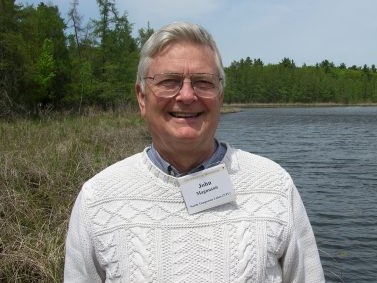Professor Emeritus
College of Letters & Science l Center for Limnology, Department of Zoology
Hometown: Gurnee, IL.
John J. Magnuson is an aquatic ecologist and limnologist with a special interest in fish and fisheries ecology. His training is in fish and wildlife management, zoology, and oceanography. Current interests include: long-term ecological research on lake ecosystems, analyses of long-term lake ice time series, climate change impacts and adaptations, thermal ecology of fishes, landscape and invasion ecology of lakes.
Dr. Magnuson is now an emeritus professor at the University of Wisconsin-Madison, residing in the Center for Limnology which he helped form in 1982, and was its first director. His students have received their graduate degrees in Zoology, Oceanography and Limnology, and Water Resources Management. He has had a strong interest in seeing science used in solving real world issues related conservation of species, climate change, and fisheries.
Testimonials
“Please keep speaking. You have a gift of gentle discourse, of humility, that helps the science go down much easier. Great job.” – John Bates, Author and WI Naturalist, Mercer, WI
“Thanks again for a wonderful presentation. I am so impressed with the crowd you drew for such a tiny town and a Saturday night.” – Susan Knight, Interim Director, Trout Lake Station, WI DNR
Talks:
What Does Lake Ice Seasonality Tell Us About Climate Change?
Lake ice cover provides a clear indicator of climate change and variability. Because human observers have recorded the dates of ice on and ice off on many lakes around the world, lake ice provides a view of what is happening, often well before direct climate measurements of temperature were available. In Wisconsin and other states some records began as early as the 1850s. So what do these records tell us? Professor Magnuson will talk about the changes and variability in ice cover in Wisconsin lakes from the 1850s to the present. Several of our Wisconsin inland lakes now have had one or more winters with incomplete ice cover. One long-term record in Japan comes from a Shinto ceremony on Lake Suwa that began before Columbus discovered America and another in Finland that began before the start of the Industrial Revolution. He will also discuss the value of lake ice to us largely for cultural reasons and as a measure of what is happening to climate.
Lakes as Islands, Oceans as Continents
Lake Ice and the Loss of Winter
Decline in lake ice is an early influence of climate change. These lakes are scattered across the landscape where people live. Lakes in Wisconsin and around the Northern Hemisphere have been freezing over later and breaking up sooner. Some are even beginning to not freeze over every winter. Cultural resources such as skating and ice fishing, are being lost in areas where lake ice has been considered a permanent part of their sense of place.
